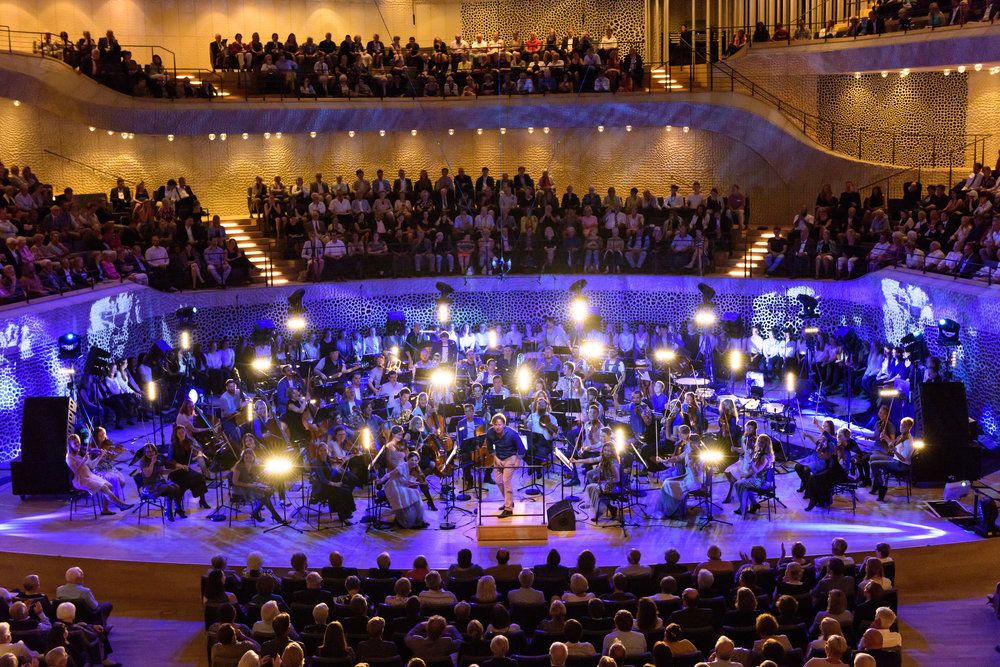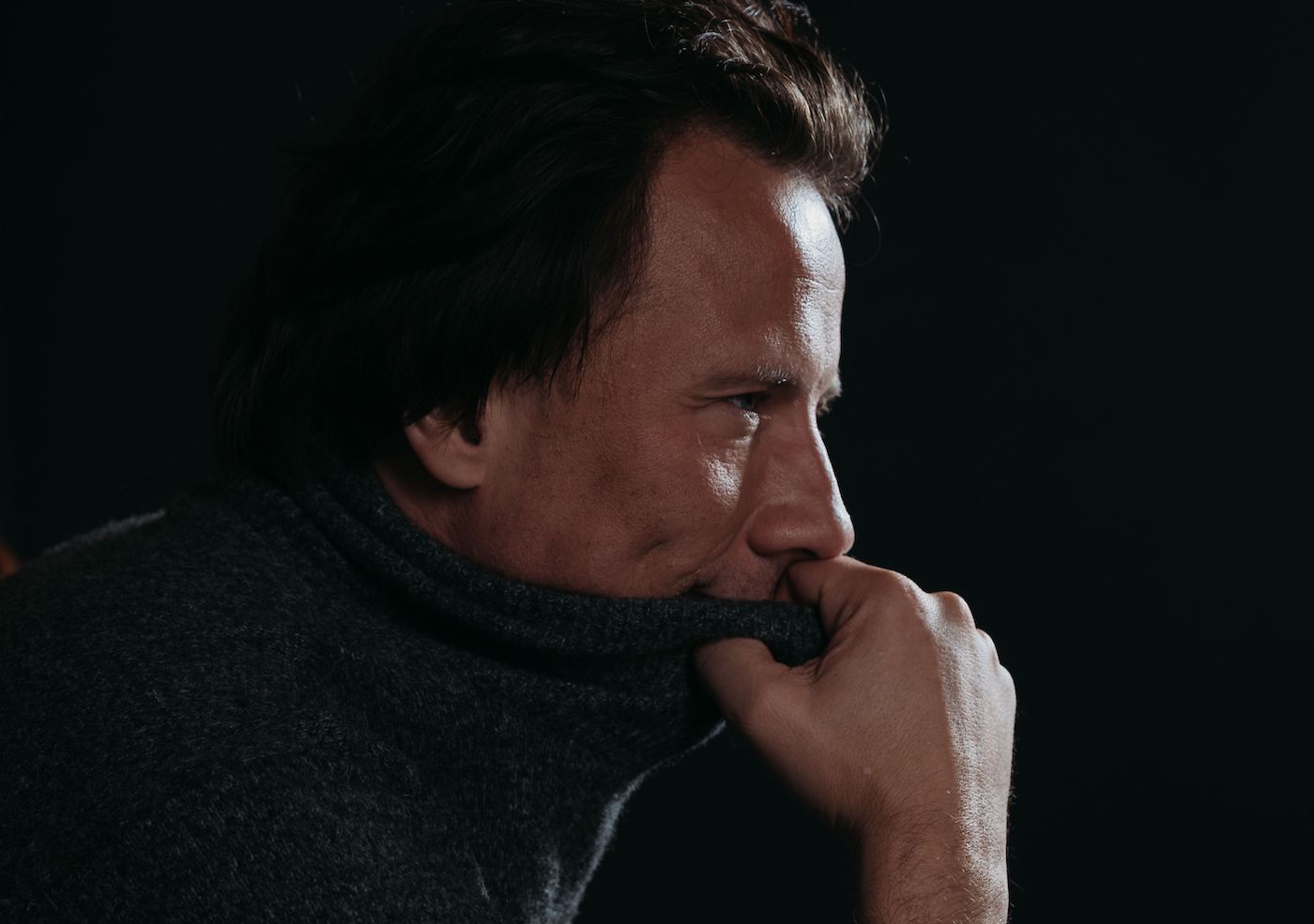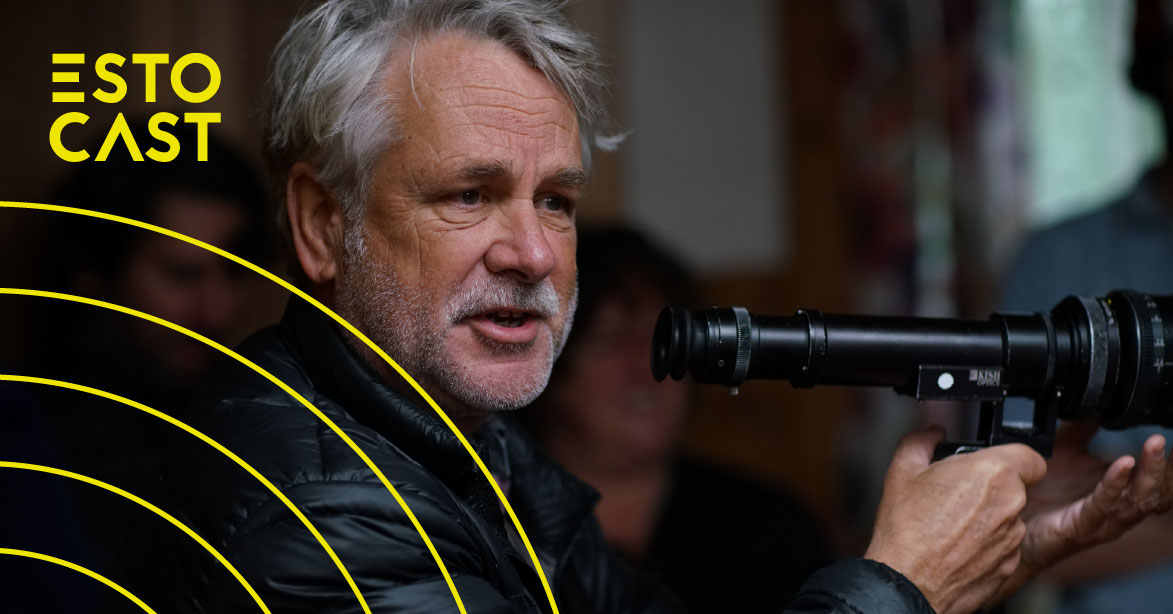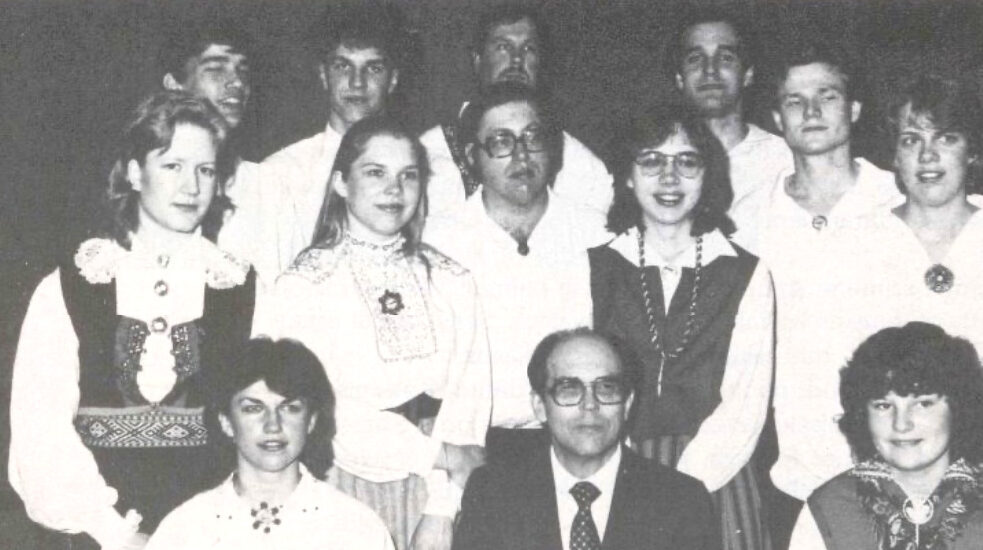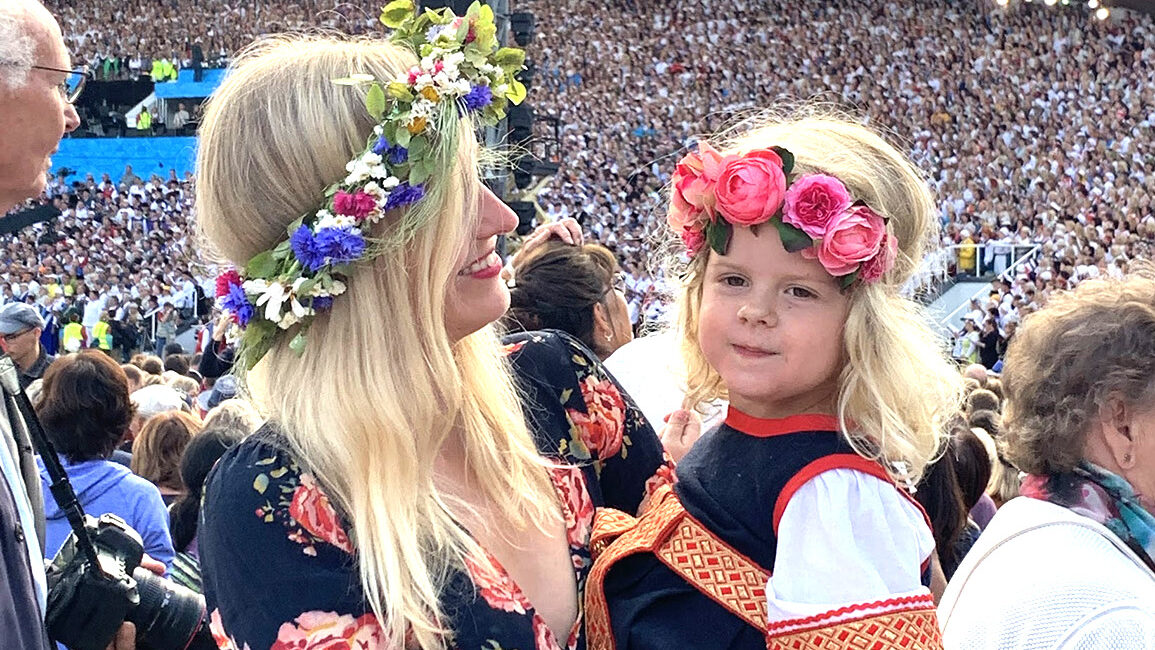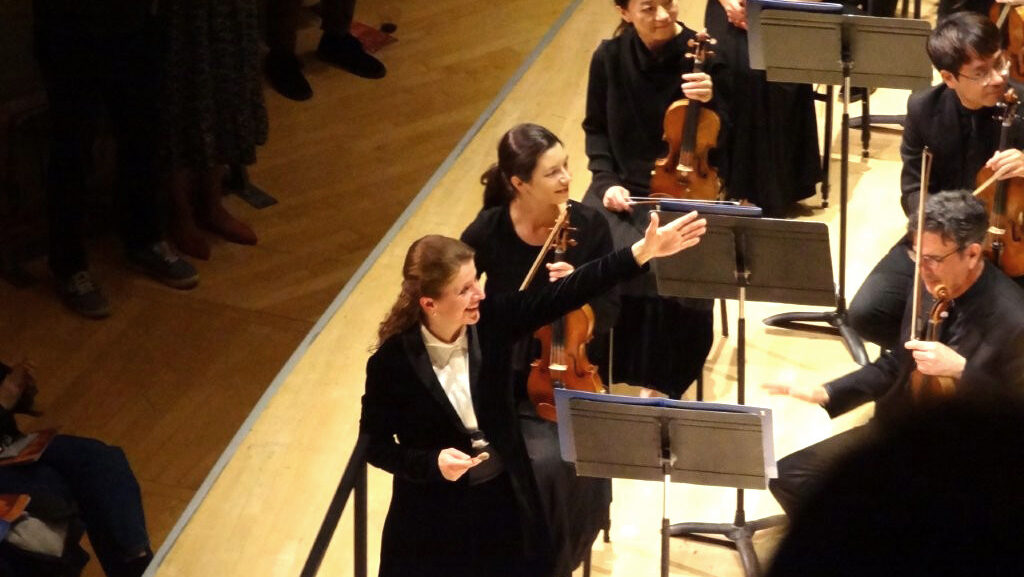Quotes from Reuters news agency: „Kristjan Järvi has earned a reputation as one of the canniest, and most innovative programmers on the classical scene.“ „…Järvi has been breaking down ‘concrete barriers’ between the audience and classical music pretty much since he became a conductor, starting off as an assistant to Esa-Pekka Salonen at the Los Angeles Philharmonic in 1998“.
Nordic Pulse is the kind of film one would want to see at least a couple of times to fully appreciate its form and storytelling. It follows the formation of a brand new youth orchestra, Baltic Sea Youth Philharmonic, as the collective protagonist. At the same time, the film also tells Kristjan Järvi’s story of leaving Soviet Estonia for the United States of America in the 1980’s, and of developing his unconventional perspectives on making music. Together with the accomplished musicians who take on unimagined challenges in music and develop further under the guidance of Järvi, film viewers experience the power of music to overcome boundaries of geography and human convention. The film depicts the musicians’ emotions and reactions as they memorize the half-hour long „Firebird Suite“ by Stravinsky as an experiment in performing complex music without sheet music on stands in front of them. Subsequently the orchestra has become accustomed to memorizing two-hour long concerts.
As the years passed, the orchestra changed its name to the Baltic Sea Philharmonic.
The Nordic Pulse Panel Discussion was another coup led by the Alberta Estonian Heritage Society. Moderated by Kelly Schuler from Canada, Kristjan Järvi participated from Italy, director David Donelly from England and Dr. Liina-Ly Roos from the USA. A professor at the University of Wisconsin, Dr. Roos specializes in twentieth to twenty-first century Nordic and Baltic culture with a specific focus on post-WWII and contemporary film, television and literature. The hour-long panel event was first seen live on Zoom; the recording was then made available via the internet for the next day.
During the panel, Kristjan Järvi discussed further his philosophy of music that is intricately entwined with life. His goal of doing away with the music stands, for example, is not only about reaching a new level of music performance, but it is also ultimately about listening to, supporting and trusting each other. The freedom that comes from not having to rely on music stands is based on both discipline and a willingness to leave one’s comfort zone. His sometimes unconventional or ‘un-normal’ style of leadership, as quoted several times in the film, has inspired the international young musicians who joined his vision twelve years ago, to stay with the orchestra and achieve more than they could have believed of themselves. Järvi encourages his musicians, and perhaps also the viewers, to take risks, and as he says in the film, to rethink what the term ‘success’ even means. Is it about following perfectly the conventional ways of working and of seeing the world, or, is it about creating something new; rediscovering that everything is possible? For Järvi, it is the latter.
Completed in 2019, Nordic Pulse’s planned distribution was disrupted by the pandemic, but will be widely available in 2021.
Helgi Leesment, Victoria, BC
Dr. Liina-Ly Roos, Madison, Wisconsin

